Protect Your Skin: How to Choose the Perfect Sunscreen! Dive into this guide for expert tips tailored to your skin type
Summer's here, and that means sunshine! While soaking up the sun can be enjoyable,
protecting your skin from its harmful rays is super important.
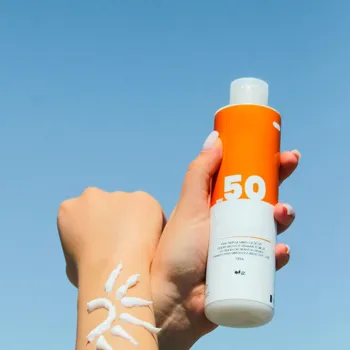
Sunscreen is your best friend in this battle, but with so many options available in the market, choosing the right one can feel, well, a little confusing, no?
This article will guide you through the process, helping you pick the perfect sunscreen match for your specific skin type.
Why Sunscreen is Crucial, Boss!
Before we dive into the specifics, let's quickly understand why sunscreen is an absolute essential in your daily skincare routine. The sun emits ultraviolet (UV) rays, specifically UVA and UVB rays, which can cause significant damage to your skin.
UVB rays are primarily responsible for sunburns, while UVA rays contribute to premature aging, wrinkles, and even skin cancer.
Using sunscreen regularly helps protect your skin from these harmful rays, reducing your risk of sunburn, skin cancer, premature aging, and hyperpigmentation (dark spots).
Think of it as an investment in your skin's future health and youthful appearance. Applying sunscreen is super simple, just a few seconds or minutes spent, but its protection lasts long giving you an even skin tone for years to come.
Understanding Your Skin Type: The First Step
The foundation of choosing the right sunscreen lies in understanding your skin type. Is your skin oily, dry, sensitive, normal, or combination?
Identifying your skin type will help you narrow down your sunscreen choices and select a formula that suits your skin's specific needs.
Oily Skin
Oily skin tends to produce excess sebum, leading to a greasy appearance and potential breakouts.
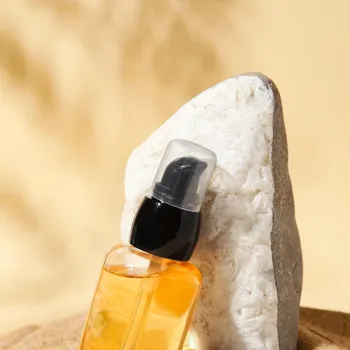
Sensitive Skin
Sensitive skin is easily irritated and prone to redness, itching, and allergic reactions.
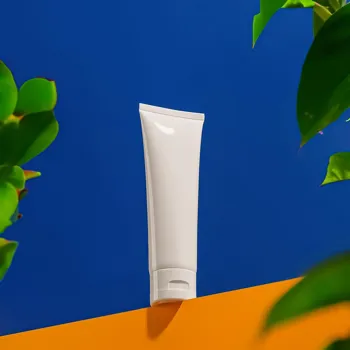
Normal Skin
Normal skin is well-balanced, with neither excessive oiliness nor dryness.

Combination Skin
Combination skin has a mix of oily and dry areas, typically with an oily T-zone (forehead, nose, and chin) and dry cheeks.
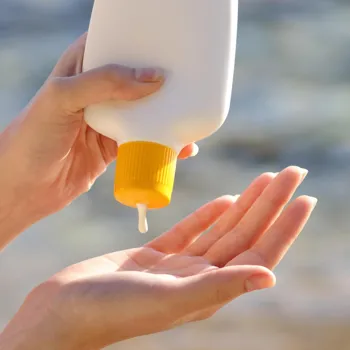
Sunscreen Jargon Decoded: SPF, Broad Spectrum, and More
Now that you know your skin type, let's demystify some common sunscreen terms.

SPF (Sun Protection Factor)
SPF indicates how well a sunscreen protects against UVB rays. The higher the SPF, the more protection it offers. Dermatologists generally recommend using a sunscreen with an SPF of 30 or higher. SPF 30 blocks about 97% of UVB rays, while SPF 50 blocks about 98%.

Remember, no sunscreen can block 100% of UV rays.
Broad Spectrum
This term signifies that the sunscreen protects against both UVA and UVB rays. Look for "broad spectrum" on the label to ensure you're getting comprehensive protection.
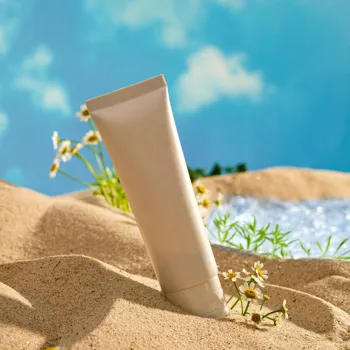
Water Resistant/Waterproof
No sunscreen is truly waterproof. "Water resistant" means the sunscreen remains effective for a certain period while swimming or sweating, as indicated on the label (e.g., 40 minutes or 80 minutes). You'll still need to reapply sunscreen after swimming or sweating excessively.

Finding the Perfect Formula: Sunscreen Recommendations by Skin Type
Based on your skin type, here are some sunscreen recommendations:
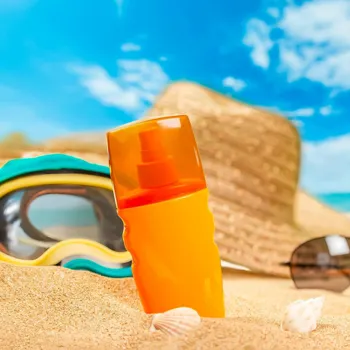
For Oily Skin
Opt for oil-free, non-comedogenic (won't clog pores), and lightweight sunscreens. Gel-based or matte-finish formulas are excellent choices. Look for ingredients like silica or zinc oxide, which can help absorb excess oil. Avoid heavy creams or oil-based sunscreens.
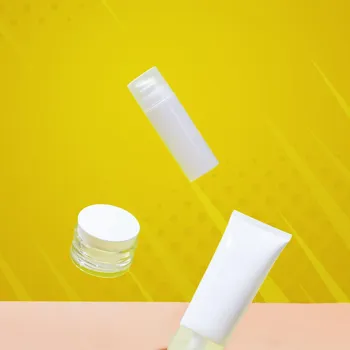
Look for keywords like "oil free", "non comedogenic" or "matte finish" on the product. Don't be afraid to experiment until you find the perfect sunscreen.
For Dry Skin
Choose a moisturizing sunscreen with hydrating ingredients like hyaluronic acid, glycerin, or ceramides. Cream-based sunscreens are generally a good option. Avoid alcohol-based sunscreens, as they can further dry out your skin.
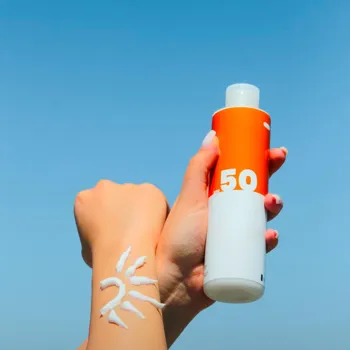
Look for products that offer broad-spectrum protection with an SPF of 30 or higher. Reapply every two hours and after swimming. A sunscreen stick on your hands and arms will keep your skin moisturized throughout the day.
For Sensitive Skin
Select a sunscreen specifically formulated for sensitive skin. Look for mineral-based sunscreens containing zinc oxide or titanium dioxide, as these are typically less irritating than chemical sunscreens.
Avoid sunscreens with fragrances, dyes, parabens, or oxybenzone, as these can trigger allergic reactions. Perform a patch test before applying the sunscreen to your entire face to ensure it doesn't cause any irritation.
Sunscreens designed for babies are often a good choice for sensitive skin, because they are formulated to be extra gentle and non-irritating.
For Normal Skin
You're lucky! You have more flexibility in choosing a sunscreen. You can opt for a lightweight lotion, cream, or gel, depending on your preference. Just make sure it's broad spectrum with an SPF of 30 or higher. Pay attention to factors like texture and feel to find a sunscreen you enjoy using.
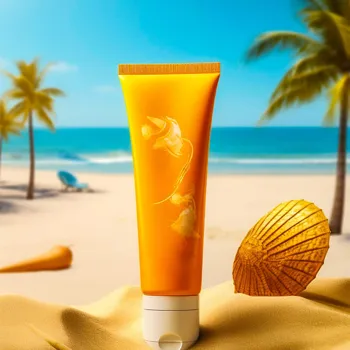
A sunscreen spray might be nice for outdoor activities! Always test them out before committing to a particular sunscreen.
For Combination Skin
Finding a sunscreen for combination skin can be tricky! Look for a lightweight, oil-free sunscreen that won't clog pores but still provides adequate hydration. Gel-based or lotion formulas often work well.
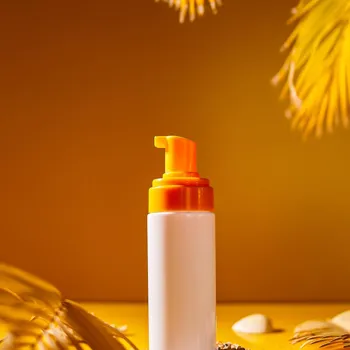
You might also consider using different sunscreens on different areas of your face – a lighter, oil-free sunscreen on your T-zone and a more moisturizing sunscreen on your cheeks. Mineral sunscreens are a good option for combination skin.
Even on cloudy days, up to 80 percent of the sun's UV rays can penetrate your skin. So, ensure daily application, irrespective of the weather. Sunscreen protects, it also aids in maintaining a youthful skin protecting from premature ageing.
Application Tips: Maximizing Sunscreen Effectiveness
Choosing the right sunscreen is only half the battle. Proper application is just as important to ensure you're getting adequate protection.
Apply Generously: Most people don't apply enough sunscreen. Use about one ounce (a shot glass full) to cover your entire body. For your face, use about a teaspoon-sized amount.
Proper storage of sunscreen is crucial to maintain its effectiveness. Sunscreen should be stored in a cool, dry place, away from direct sunlight.

Apply 15-30 Minutes Before Sun Exposure
This allows the sunscreen to bind to your skin properly.

Reapply Every Two Hours
Reapply sunscreen every two hours, or more frequently if you're swimming or sweating.

Don't Forget Often-Missed Areas
Remember to apply sunscreen to your ears, neck, back of your hands, and tops of your feet.
Check Expiry: Your sunscreen has an expiry stamp, post the mark time the effectiveness is impacted.
**Layer: ** Use your moisturiser and sunscreen together.
In conclusion, choosing the right sunscreen for your skin type is essential for protecting your skin from the sun's harmful rays.
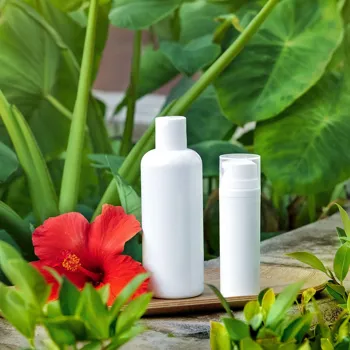
By understanding your skin type, deciphering sunscreen jargon, and following proper application techniques, you can find the perfect sunscreen to keep your skin healthy and youthful for years to come. So, go ahead, embrace the sunshine, and enjoy the outdoors, knowing you're well-protected!
AI Generated Content. Glance/InMobi shall have no liability for the content











